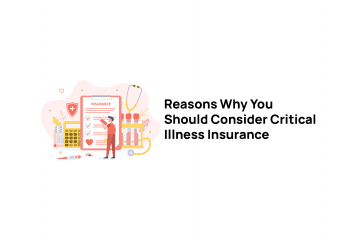Critical illness insurance provides you a lump sum payout if you develop cancer, have a heart attack, have a stroke, or have any one of about 2 dozen covered conditions. At least, that’s how it’s sold. The reality is quite different. It’s entirely possible for you to have a heart attack or develop cancer and not receive a benefit payout. All that elation over getting a cheque for $100,000 because you developed cancer? Gone in an instant with a denied claim. Let’s cover some of the pitfalls of critical illness insurance.
With critical illness insurance, the details of the policy contract will supersede both your salesperson’s hype and your expectations. If it’s defined in the contract, it governs. We have a series of articles that discuss specifics of critical illness insurance (read them all for more details) however this article will hopefully serve to both bust some of the myths about this type of insurance as well as uncover some gotcha’s.
- Simply developing cancer, stroke or heart attack is not enough. You are only covered if you develop the condition under a specific set of conditions, AND are tested as required, AND report it within a specific timeframe. If you fail meet any of these criteria your claim will be denied. You should read and understand the definitions of each condition so you know what your coverage is for
- Only some heart attacks are covered. Heart attacks are covered only if they are caused by a blockage. Heart attacks occur for reasons other than blockages, those heart attacks are not covered.
- Only the “right” types of cancer are covered. Some cancers such as early prostate or some forms of melanoma are specifically excluded or only partially covered.
- Cancer in the first 90 days of the policy is not covered. That requires little explanation. This protects the company from people who may have developed symptoms but have deferred a diagnosis until after they buy a policy.
- Claims submitted after six months will be denied in many cases. Yes, you’re busy dealing with your heart attack, but don’t forget to get the paperwork started or risk losing the benefit.
- If it kills you, it’s not covered. If you die within 30 days of diagnosis, no claim is payable (there’s actually a policy available that is an exception to this).
- Only some organ transplants are covered.
- If you’re diagnosed and treated outside of Canada or the U.S., additional conditions apply. Further, occupational HIV is not covered by some policies if you develop it outside of Canada or the U.S. – it varies by policy.
- Alzheimers disease is only covered if you need 8 hours of care each day.
- For loss of limbs coverage, you must lose two limbs – not one.
- Parkinson’s disease is covered only if you do not meet 2 of the definitions of daily living. A diagnosis of Parkinson’s disease alone will result in a denied claim.
There are more details for each covered condition, the above is hopefully enough to serve as a warning that you must deal with an expert when purchasing Critical Illness Insurance. We recommend you call us toll free at 1-877-344-4011 or book a call with one of our critical illness specialists.




